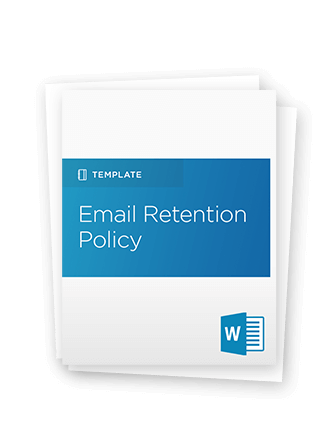Email Risk Is Real: email archiving in today’s world

They must be thinking, “That can’t happen to me.”
The average citizen, reading about archived emails in today’s world, must be scratching his or her head and thinking, how else can one explain the continuing string of media reports on corruption uncovered by emails?
Did you know that there is even a page on an Internet site entitled Above the Law that exposes email scandals, if you want to overdose on email-related public scandals?
The latest in a string of political corruption cases exposed with the help of email is that of former Virginia governor Robert F. McDonnell and his wife, Maureen, whose recent indictment included a number of unearthed emails—and it wasn’t a pretty picture.
The Washington Post reported the following unearthed email messages:
- “We are broke, have an unconscionable amount in credit card debt already, and this Inaugural is killing us!!” wrote Maureen McDonnell to her husband’s aide.
- A gubernatorial staffer emailed financial supporter Jonnie R. Williams Sr., that the governor would be unable to attend his key corporate event, writing, “What else can we do to fix this?”
- Williams’s company needed university involvement to fund its pharmaceutical research. According to the indictment, Maureen McDonnell wrote am email exhorting a gubernatorial aide to intervene to speed up the application process. Eight days later, the governor himself sent an email to that aide about the same issue.
- The Washington Post quotes that aide as responding, “Will do. We need to be careful with this issue.”
It’s not just governors who get caught using email in questionable ways. Senate Minority Leader Mitch McConnell’s aide, Jesse Benton, appears to be using “email fear tactics” to raise campaign funds, as revealed in a video posted on YouTube. There simply is not enough headache medication to relieve this type of exposure.
It’s not just politicians
While email exposures of unethical and/or unlawful political acts garner major media attention, corporations, universities, and other institutions all have experienced email burn. Cornell and other universities have made the news owing to email exposures. And remember the Libor scandal in the U.K. which brought down Barclay’s Bank CEO Bob Diamond? The Huffington Post will remind you of email’s role in that scandal and others.
Moreover, the HuffPost article has a stern reminder about the shelf life of emails: “‘The ability of e-mails to surface at a later date is, for a variety of reasons, increasing,’ says Anthony Dyhouse, a cyber-security expert for British defense firm QinetiQ. ‘They are not transient. They have no half-life and they do not degrade… when viewed after a period of several years – and (with) changing politics, the original content can suggest an entirely different meaning.’”
Email is not only forever. Remember the Berkman Center’s conclusion about email which we noted in our recent blog: “Almost all agree that digital discovery means more complete access; email has been called a ‘truth serum,’ access to which could expose all manner of wrong-doing.”
Heavy reliance on emails means more opportunity for errors
These days, emailing is done so quickly as the essential method of communication that the risk of error is almost a guarantee. Whether your institution is a government entity, a private corporation, a university, or an association of any sort, protecting the institution must include email risk mitigation.
Mitigation of risk and increased compliance
Turning to a trusted cloud-based email archiving service can cut costs associated with email retrieval, regulation compliance, and legal responses. A number of our blogs, such as this one on mitigating corporate risk, detail how Intradyn can help.
We know that you depend on email.
Turn to Intradyn, the first email archiving solution provider, for high-level customer service and email accessibility, safety, and security. Please contact us to learn more about ways in which our secure email archival system can help your institution avoid email hazards.

